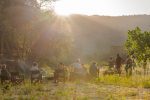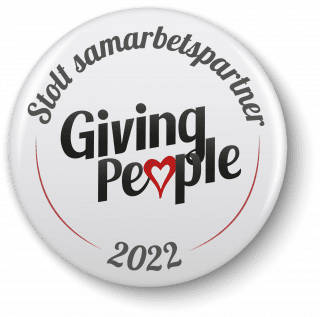From the dry, yellow savanna that symbolizes Northern Kenya’s vast plains rises 900 square kilometers of lush mountain forest like no other in East Africa. Kitich means ‘a happy place’ in the Maa language and this is a perfect place for guests to relax and recharge while enjoying the true wilderness of Northern Kenya, the forest and the Mathews Range. Calling them the Lenkiyio Heights, the Samburu people have shared this remote landscape with elephants and other wildlife for centuries – dependent on the water from its clear valley streams, and the food and medicine found in the forests.
Imagine waking up to a cacophony of birdsong, unforgettable views of the valley frequented by elephants, indulging in delicious food from the camp’s own farm, relaxing in a hammock, strolling through the organic gardens, hiking through the forest, exploring Milgis Lugga with help by camel, enjoy a sundowner on the Murit pass, swim in a waterfall, cycle through the valleys, participate in a yoga flow or just curl up with a book. There is something for everyone…
Contact form

Ecorating: 4.0
This product meets our requirements for Ecorating, a product that is good for humans and the environment.
Does my trip make a difference?
Read more
This product meets our requirements for Ecorating, a product that is good for humans and the environment.
Sample Itinerary

Nestled in one of the valleys – overlooking a river frequented by African dogs, colorful birds, leopards and elephants – are six tents. Kitich Forest Camp offers traditional safari charm in a wilderness unlike any other in Africa, providing an experience as unforgettable for those discovering Africa for the first time as for those lucky enough to have spent years exploring it .
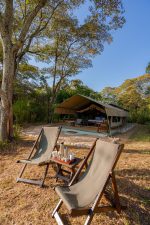
Kitich Forest Camp was originally established as just that – a camp in the forest, meant to have as small a footprint as possible and blend into the wild landscape around it. The camp has stayed true to this, with six en-suite canvas tents that offer guests all the rustic charm of an old-fashioned safari experience, without compromising on comfort and luxury. Each tent has its own private veranda overlooking the Ngeng River Valley, frequented by elephants, painted dogs, buffalo and antelope. The bathrooms are equipped with flush toilets and hot showers.

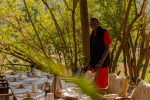
With a maximum of 12 guests at any one time, meals can be enjoyed together in the dining room in a relaxing environment overlooking a lush river glade. The camp’s daily menu contains ancient Italian recipes, made with fresh, organic ingredients from its own kitchen garden.
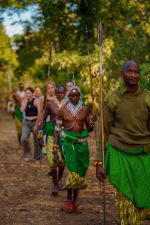
On foot is the only way to truly experience this magical place. The camp has its own experienced Samburu trackers who have an incredible mental map of the forest trails, as well as an in-depth knowledge of the tracks and calls of local wildlife. All tours are accompanied by an armed ranger.
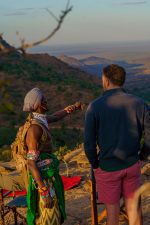

The forests surrounding the camp are home to over 350 species of birds, more than 150 species of butterflies, an array of wild forest orchids and a rare and endemic giant cycad – a plant that looks like it belongs in the age of the dinosaurs. They are also home to forest elephants, leopard, buffalo, wild dog, big kudu, waterbuck, giant forest pig and the only population of De Brazza monkeys in Kenya.
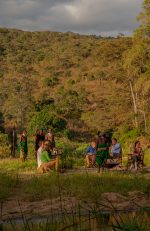
The camp has some fantastic places in the forest where you can enjoy a picnic lunch – organized and packed by the kitchen team. So whether you want to have lunch by the natural pool or in a quiet forest clearing where you can listen for the different bird calls, it is entirely possible.
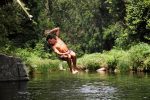
There is no chlorinated, tiled swimming pool at Kitich Forest Camp. Instead, guests can take a dip in a crystal clear forest pool and bathe as it should be – in nature.
Trip details
Eco rating: 4.0
Season: June – April
Airport: Nairobi Jomo Kenyatta International Airport (NBO)
The price includes: Accommodation, meals and activities according to program
The price does not include: International flight, tip, travel insurance, visa
Good to know
Travel etiquette: Use water sparingly. The Maasai are a proud people, always ask before taking photos. Bring small notes in local currency to be able to buy local handicrafts out in the villages. Shake hands with those you meet – a courtesy code here.
Mobile and Email: Limited Wi-Fi in the camp, which will work for messaging apps, no heavy downloads or video calls. There is no mobile phone signal, there is a satellite phone in the camp for emergencies.
Visa: The passport must be valid for at least 6 months after departure and have at least 2 blank pages for visa stamps.
For Kenya the following applies:
E-application:
You must apply for a visa online. Do this at least 3 weeks before departure. It is good to have your passport, a passport photo and payment card ready. You choose single entry, cost 51 USD for an adult. You must pay for and verify this visa online, download and print to show on arrival at JKIA Nairobi. Note that you must check your account on Evisa yourself to know that you have received an approved visa. It will not be sent to you by email.
Time zone: GMT + 3
Vaccinations: Read more about which vaccinations you need here
Packing: Someone once said that “Africa is a cold continent blessed by a warm sun”. The days can be extremely hot while the nights can be cool. The average annual temperature varies between 18 °C – 30 °C, while the average annual rainfall is 345 mm with peaks in the months of November and April. Bring along jumper/fleece for morning and evening, both long and short trousers, good and sturdy walking shoes. Colors should allow you to blend into the environment as much as possible, so choose different shades of green, brown, yellow or red that characterize the African soil and vegetation. Bring a waterproof jacket, hat and sunglasses. Soft bags are easier to pack in the cars you travel with, if you are flying the maximum weight is 15 kg per person. Mosquito nets are available, but feel free to bring mosquito spray.
Local currency: Kenyan shillings
Note: Kenya has banned plastic bags and this is controlled by customs. The introduction of plastic bags can result in large fines.
Water: Clean water is available at the camp.
Safety: Your safety is our priority. In Nairobi, don’t wander around alone and avoid certain places Down Town as well as avoid crowds.

Ecorating: 4.0
This product meets our requirements for Ecorating, a product that is good for humans and the environment.
Does my trip make a difference?
Read more
This product meets our requirements for Ecorating, a product that is good for humans and the environment.
Nature conservation
Located on National Forestry land, Kitich is surrounded by Namunyak, a 383,000-acre community-owned and managed nature reserve. Namunyak is part of a network of 39 conservation communities across northern Kenya supported by the Northern Rangelands Trust. Together, these conservation areas empower local people to take control of their wild areas, build sustainable economies linked to conservation, lead peace efforts to repair years of conflict, and shape government regulations to support it all. As institutions, they not only give people a voice, but also a platform to develop sustainable business and livelihoods, either directly or indirectly related to conservation. The network works to conserve wildlife and sustainably manage the grasslands, forests, rivers and marine ecosystems on which everyone depends. As a result, a region once notorious for conflict and poaching is now at the forefront of community-led development, inextricably linked to the protection of its incredible wildlife and landscape.
Sustainable tourism is a critical part of the model for coexistence between nature, wildlife and local communities, providing jobs, conservation income and conservation incentives.
Kitich employs approximately 90% of their permanent staff from Namunyak, and 100% of temporary workers from the local village, providing income and career opportunities in an area of little economic opportunity. Where possible, they source any ingredients they cannot grow themselves from local suppliers, and connect local groups with guests to enable them to earn income from cultural visits.
60% of the tourism revenue Namunyak receives goes towards operating costs for the conservation area, which pays rangers’ salaries and refuels vehicles. The other 40% goes to social projects that are considered a priority by society – such as educational grants and water projects. In addition to positively impacting local lives, Kitich aims to be as environmentally responsible as possible. Their efforts to go green – which include running the camp entirely from solar energy, recycling waste and sourcing local ingredients – have been awarded ‘Gold Level’ by Ecotourism Kenya.
Society
All guests staying at the camp can make a meaningful contribution directly to the local health center – Ngilai Health Center or Ngilai Primary School – which has a catchment area of 5,323 people.
Kitich Forest Camp are proud members of Pack for a Purpose, an initiative that allows travelers like you to make a lasting impact in the community of your destination. By saving a few kilos of space in your suitcase and bringing supplies for the projects the camp supports, you will make an invaluable impact on the lives of their local children and families. Through Pack for a Purpose, Kitich can organize specific donations needed in the community, from medical to educational materials. Purchased on your behalf before arrival, you can deliver your donations in person when you get there!
Check with Ecolyx before departure about the type of donations that are needed if you wish to contribute.
